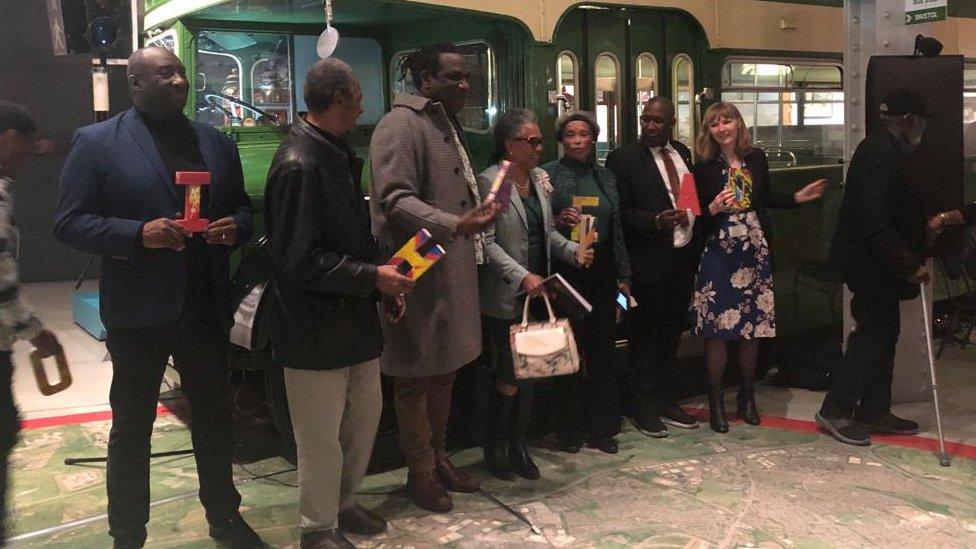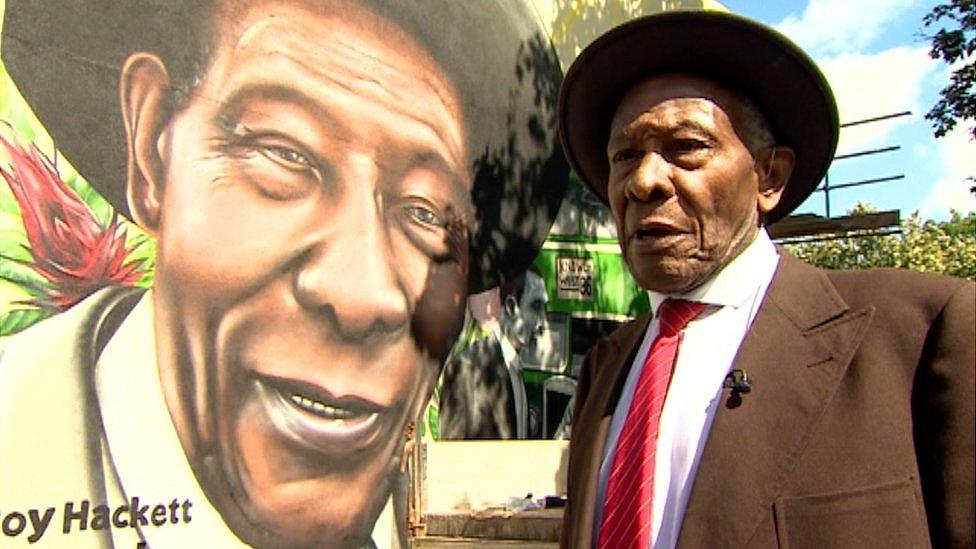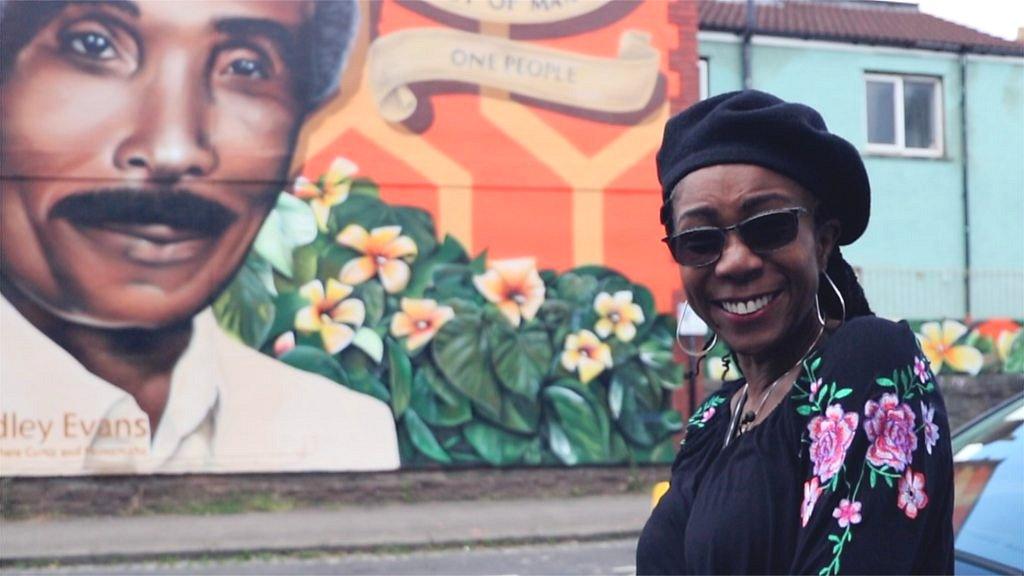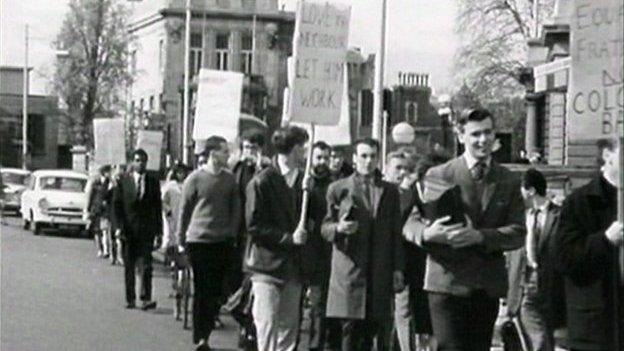Bristol marks 60 years of bus boycott protests
- Published

Speakers and survivors came together to remember the boycott at Bristol's M Shed Museum
Survivors of the Bristol bus boycott have marked 60 years since the protests began.
The boycott started in response to the Bristol Omnibus Company's refusal to hire black workers in 1963.
After months of protests, the bus company backed down and the campaign paved the way for the UK's first Race Relations Act of 1965.
Bristol Mayor Marvin Rees said: "It's important to recognise the contributions these protests made."
"I'm struck by how many people still don't know their story, history is easily forgotten," he added.
One of the boycott's most prominent members, Roy Hackett, died last year aged 93.
The successor to the Bristol Omnibus Company, First Bristol is launching a year of activities to celebrate the boycott's legacy.
Managing director Doug Claringbold said the boycott "changed the world."
"It's also about how we, as the bus operator, can continue to drive change and social mobility.
"It's scary these policies were legal," he added.

Follow BBC West on Facebook, external, Twitter, external and Instagram, external. Send your story ideas to: bristol@bbc.co.uk , external
Related topics
- Published3 August 2022

- Published4 July 2019

- Published27 August 2013
